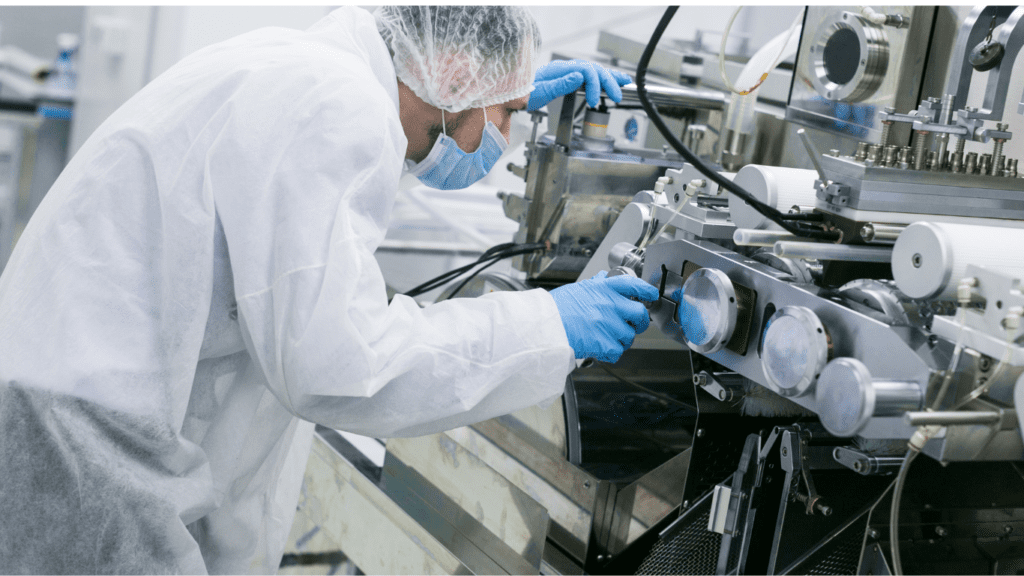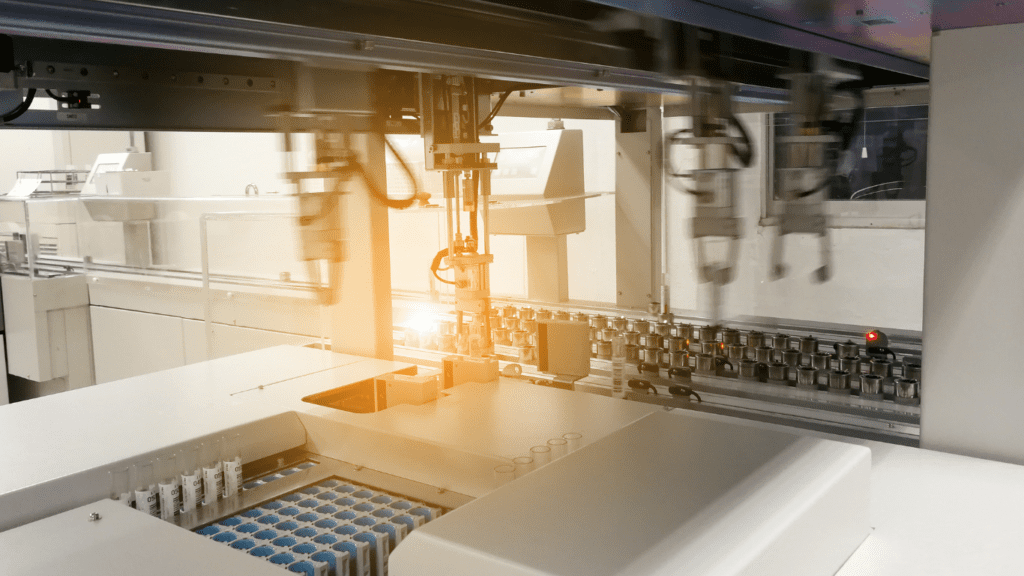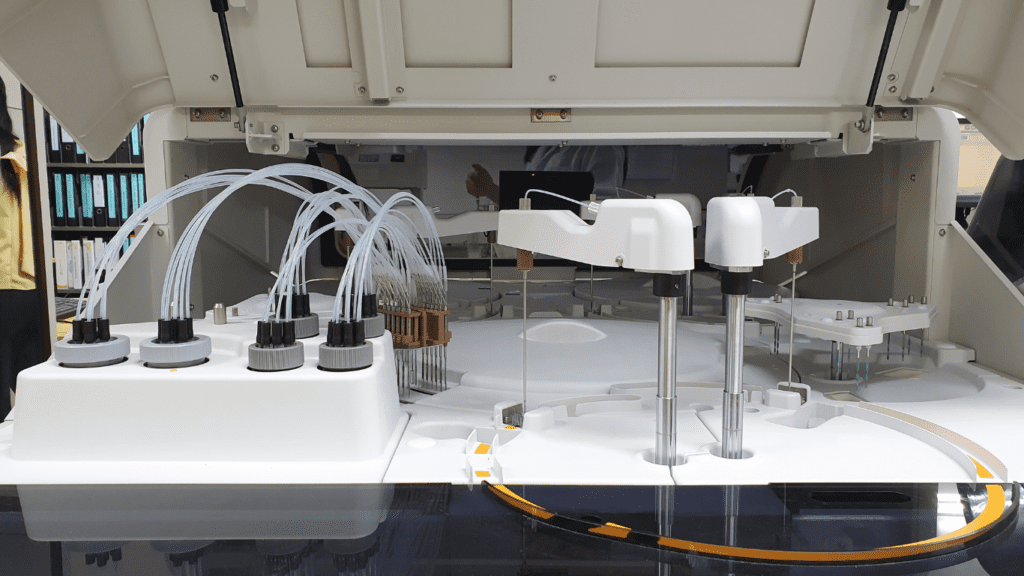A high-tech Life Sciences Field Engineer’s work
What is it like to work as a Life Sciences Field Engineer? Jack Ogden, an Implementation and Integration Engineer with Beckman Coulter Life Sciences won the most recent ‘European Field Service Hero’ award. Jack is experienced in winning awards as he was previously awarded ‘Student of the Year’.
In this article, Jack answered some questions about his background and shared his experience of working as an Implementation and Integration Engineer.
Jack Ogden – A day in the life of an Implementation and Integration Engineer – Life Sciences


Background
Could you give a brief description of your background and what led you to study and work in engineering?
My initial background from high school was always based within a technical field such as machining and electronics work. This carried on when I did work experience with Labcyte at age 16. This initial experience later led to an apprenticeship with Labcyte.
How have you balanced studying and working?
Work and study life balance has been very difficult to maintain especially with trying to keep some element of social life. Most of my university reports and prep work for exams were done after work each day. Which sometimes meant I was working on university papers until the early hours.
Has there been a particular person who has inspired you?
Within both the work environment and outside of work, the main inspiration I could say would be Mark Rollins (Manager Technical Projects at Beckman Coulter) who has always supported both my growth as an engineer and my individual growth.
Typical Day
What’s your typical day like?
As a Field Service Engineer, a typical day would be filled with either onsite customers or using remote desktop software to support customers. As an FSE my area of coverage includes the UK to Israel which meant there is a lot of travelling. Before COVID I was doing around 80 flights per year and upwards of 100 nights in hotels. Which meant there were lots of days where the typical day began at 3:00 am.


How much of your time is spent ‘in the field’?
As an FSE the role is fully based on being in the field. So, most days of the week would be on a customer site somewhere within Europe. On a typical basis around 4 days, a week would be customer-facing.
Which other parts of the organisation give you support?
Within the organisation, I have received support from multiple areas such as manufacturing and R&D for the very tricky complicated fault which is very rare to occur.
The challenges of work as a Life Sciences Field Engineer
What do you find most challenging when you are working – technical side, people/customers or logistics (travel etc)?
I love travelling and exploring new places but being away from my family frequently can take its toll.
What has been your most challenging job in the field?
The best example I could give would be during COVID.
There was a travel ban which meant I couldn’t visit a customer site in Sweden. And the local FSEs in the area didn’t have any experience with the automation system that needed to be installed. I used the Hololens, which is AR technology, to provide visual support to the onsite engineers. They then successfully installed a large automation system, even though they had never seen one before.
Have you ever arrived on site and found that it’s been much easier than you expected? For example, have you just needed to switch on a machine?
To be honest this happens more than expected. I have multiple stories which include upwards of 10 hours of travel to a customer site which just required a restart of the instrument or something simple such as a new power cable.


Finding a winner
What makes the type of field service engineer who wins an award? (e.g. personal drive, training, ability to think outside the box)
I think the type of engineer to win awards for their achievements is someone who has a real passion for the instrument or product lines they support. If you have the drive to succeed in something and work to improve in personal growth continuously, the ability of the engineer will forever increase. This will be reflected in the field and the response given by customers.
Training
How important is ongoing training?
Continuous improvement of skills and knowledge is always a bonus for every engineer and the team they support. Having engineers who can share even just the smallest bits of information with each other can save hours within the field. This is why having continuous support and growth is so key to FSEs.
How key is it to have a mentor and a good team around you?
A great team and supervisor can make or break a support department. Having a supervisor/manager who supports you and the team you work in with resources and support can have drastic effects on how fast customer issues are resolved, as well as the overall morale of the team. A team that shares knowledge will prosper.
Advice for new Life Sciences Field Engineers
What advice would you give to someone who has just started their first job as a field engineer?
As a new FSE, I would say to absorb as much knowledge and information from as many key members of the team as you can. In turn, this knowledge will make you much stronger. Also to maintain passion for the equipment and field service. And to have fun.
Apart from a strong technical background, what are the three most important skills to have?
The three main ones are as follows.
The ability to step back and re-think problems,
Wanting to learn,
Strong communication skills.
How do you balance travel with having hobbies and leisure time?
Travel does give problems when it comes to hobbies or social life. As a typical week is filled with either travel or onsite presence, the weekends become very precious, for both hobbies and social events.
If you know someone working in Europe who deserves a Field Service award, the categories are here: European Field Service Awards.
Further reading about a Life Sciences Field Engineer’s work
An Indian engineer supporting life science instruments in Qatar


Congratulations on your ‘European Field Service Hero’ award Jack. Thanks for sharing your experience and tips with our community.